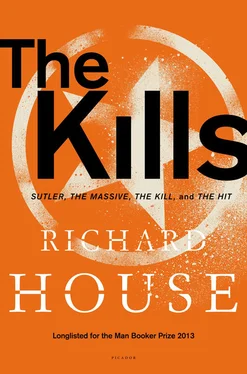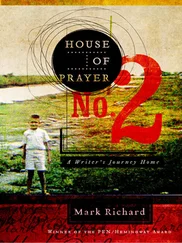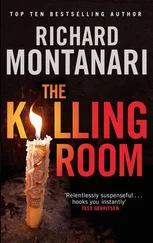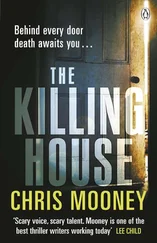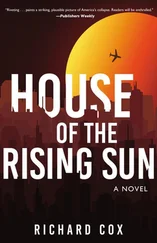Richard House - The Kills
Здесь есть возможность читать онлайн «Richard House - The Kills» весь текст электронной книги совершенно бесплатно (целиком полную версию без сокращений). В некоторых случаях можно слушать аудио, скачать через торрент в формате fb2 и присутствует краткое содержание. Год выпуска: 2013, Издательство: Picador, Жанр: Современная проза, на английском языке. Описание произведения, (предисловие) а так же отзывы посетителей доступны на портале библиотеки ЛибКат.
- Название:The Kills
- Автор:
- Издательство:Picador
- Жанр:
- Год:2013
- ISBN:нет данных
- Рейтинг книги:3 / 5. Голосов: 1
-
Избранное:Добавить в избранное
- Отзывы:
-
Ваша оценка:
- 60
- 1
- 2
- 3
- 4
- 5
The Kills: краткое содержание, описание и аннотация
Предлагаем к чтению аннотацию, описание, краткое содержание или предисловие (зависит от того, что написал сам автор книги «The Kills»). Если вы не нашли необходимую информацию о книге — напишите в комментариях, мы постараемся отыскать её.
The Kills — читать онлайн бесплатно полную книгу (весь текст) целиком
Ниже представлен текст книги, разбитый по страницам. Система сохранения места последней прочитанной страницы, позволяет с удобством читать онлайн бесплатно книгу «The Kills», без необходимости каждый раз заново искать на чём Вы остановились. Поставьте закладку, и сможете в любой момент перейти на страницу, на которой закончили чтение.
Интервал:
Закладка:
The woman in the passenger seat took off her sunglasses. One hand held her hair in place, fingers split, uncertain, while the other signalled the driver to slow down. When the vehicle drew to a stop beside him the woman dipped forward and stared, busty, cartoonish, head tilted in recognition. She called him Roger. Roger from the Australian. Right? Roger? And then a quizzical, ‘It is you?’
Ford extended his arms, offering himself, innocent.
The woman shook her head. ‘Incredible,’ she apologized, ‘crazy.’ She spoke in English to Ford and German to her companion. ‘You look like him,’ she said. ‘I mean it’s unreal. How are you here? It’s not possible. This area is cut off. The military are all the way to the border.’
The driver began to shove aside the luggage in the back of the jeep. He patted the seat in invitation. As Ford clambered aboard the woman asked if he understood English. Ford said yes, sat down, and found he couldn’t stop nodding. He began to explain himself. ‘I was heading east. I was following the convoys and they commandeered my vehicle. I’ve been here for two days. They took my car. Left me in the middle of nowhere. I’ve been walking but there’s no one.’ He pointed over his shoulder, then offered his hand realizing that he’d taken up the offer of a ride before the proper introductions. ‘Paul Howell,’ he regretted the name even as it slipped out of his mouth.
The woman didn’t catch the name. What was it? ‘Erwell?’ She looked hard back down the highway. ‘It’s impossible for you to be here. The roads have been closed for three days. Entirely closed. Where did you sleep? And food? What about food and water? You have only one bag?’
For the first time Ford realized what a mess he must appear: his trousers worn and dirty, his boots white with dust. Unshaven with sweat sticking his shirt to his shoulders; he stank, he knew this.
‘I was supposed to be back this morning. There will be people looking for me. If you drop me at the next town, I can make arrangements from there. Everything I had was in my car.’
The driver and the woman looked at each other, and the man began to drive. Ford leaned into the wind, his eyes half-closed, cat-like. The woman watched Ford in the rear-view mirror and appeared unconvinced by his story. At the driver’s suggestion she offered him water and bread. They had nothing else, she said. There was nothing to share. Ford’s feet knocked against bottles, soft packets wrapped in a supermarket bag. Cheese, he thought. Meat. Exploring with his boot. They had food.
‘What happened to you?’ The woman indicated the cuts on his face and hands.
‘An accident, not so long ago. A car accident.’ He closed his eyes to prevent more questions.
Sleep bore down on him so that he heard only pieces of what she was saying. They were journalists, Susanna Heida and Gerhard Grüner. The three days of one-way traffic meant trouble. ‘After Israel,’ Heida swept her hand out, ‘look, after Egypt, Libya, anything is possible. The Iranians have taken over the western oil-fields and no one has stopped them. The Kurds attempt to declare an independent territory. Everybody wants something. Everything is in collapse. We passed refugees all the way from Semdinli.’ She looked to Ford, expecting him to understand. ‘The military have closed the villages, blocked the roads. These people are trapped. There have been attacks over the border in both Iran and Iraq. First it was the Shabak and Yizidi, now it’s more mainstream Kurd. Iraq is inside out. It’s crazy.’ To really see what was going on they needed to be in Iraq, she said, but everything, everywhere, was now closed. The borders were impassable.
Ford gave in to the hum of tyres on the tarmac, the hot wind, and slept sitting forward, eyes three-quarter closed.
* * *
The journalists stopped at the station forecourt to let Ford clamber out of the jeep. As she said goodbye the woman looked him over again, the calculation clear in her expression that although he wasn’t the journalist she’d first mistaken him for, he looked mightily familiar.
‘Rowell?’ she said. ‘Horwell? What was your name?’
A crowd obliterated the open bays in front of the station. The road, monitored by armed soldiers, remained passable. Behind the coach station rose the slim stone minarets and the gold-ribbed dome of a mosque, behind that, five miles north, smoke guttered up from a refinery. An eggy stink clotted the air and stuck in his throat. His thanks came out dry.
Determined to be gone, Ford kept his head down as he straightened the straps on his backpack. With a final hasty goodbye he walked round the back of the vehicle, then slipped immediately into the crowd. His relief at escaping the journalists was tempered with alarm at being back among so many people after a week of near absolute solitude. Even as he entered the crowd he felt separate and distinct, in no way part of them.
Once inside he watched over men’s shoulders as the jeep inched out of the forecourt. A bus, however slow and meandering, remained his best option.
* * *
He bought a bottle of water, paid with an American dollar, and washed himself over a corner basin in a small mirrorless room. The heat made him dizzy and the water caused the small cuts in his face and hands to begin to spot and bleed. He changed his clothes, found a place to sit at the back of the waiting room and when he settled he caught his reflection in the mirrored side of a soft-drink dispenser. The plastic compressed his face, which appeared in any case longer; his cheek-bones so pronounced that it took a short moment to recognize himself. Used to shorter hair, a fatter face, the change fascinated him. With a beard, his skin dark from the sun, abraded and cut, his eyes sharper, a little harrowed, he could pass by people who knew him and be ignored.
While he waited he kept his eye on the soldiers and security guards, the men at the small booths selling halva, cashew nuts, and Coca-Cola, men in couples loitering within the bus station, and the loners stalking the darkened bays. Soldiers armed with rifles minded the entrances. Across the aisle two others slumbered arm in arm, one man’s head rested against the other man’s shoulder. The floor crammed with civilians who slept head to toe. Men in drab suits with their arms wrapped about their luggage.
Now bored, Ford sat forward with his chin on his hands and decided to steer away from the border and the coast and head further inland. He would find a small hotel, a hostel, a pension. He would keep away from the larger hotels and bars, the cafés that catered to westerners, the tea houses and public thoroughfares. He would sleep and wait, and while he waited he could be certain that anyone searching for Sutler would push forward and lose momentum.
For most of the evening Ford sat with his head in his hands, miserable with the cold. A child slept beside him on a heap of gathered coats while her mother kept watch. These pauses and delays tested his nerve. Wherever there were refugees there would be police and security forces, roadblocks and checks, and they needed to be avoided.
At midnight the electricity failed, and in the darkness broken by the tiny lights of soldiers’ cigarettes, he at last felt secure.
In this silence he concerned himself with the attack, and consciously dismissed every thought of Kiprowski. At Camp Liberty the threat of such an attack had sat with them through every moment, awake, asleep, so he now felt a kind of deflation, commingled with relief and alarm. Relief that this had happened, it was over: and what were the chances of it happening a second time? And alarm at how the event remained unresolved. He couldn’t easily dismiss his concern about Kiprowski. Think of something else now. Wipe him from your mind. But as he consciously sought less troubling thoughts, his skin prickled in memory of the heat riding over him, bullying him in one hot complex shove, a mess of hands shunting him head over heels so fast and with such force that it stripped the boots off his feet. Surely: if he had survived, then so had Kiprowski. Not thinking of Kiprowski, of course, was thinking of Kiprowski. There he is, like that man there, or him, or him.
Читать дальшеИнтервал:
Закладка:
Похожие книги на «The Kills»
Представляем Вашему вниманию похожие книги на «The Kills» списком для выбора. Мы отобрали схожую по названию и смыслу литературу в надежде предоставить читателям больше вариантов отыскать новые, интересные, ещё непрочитанные произведения.
Обсуждение, отзывы о книге «The Kills» и просто собственные мнения читателей. Оставьте ваши комментарии, напишите, что Вы думаете о произведении, его смысле или главных героях. Укажите что конкретно понравилось, а что нет, и почему Вы так считаете.
